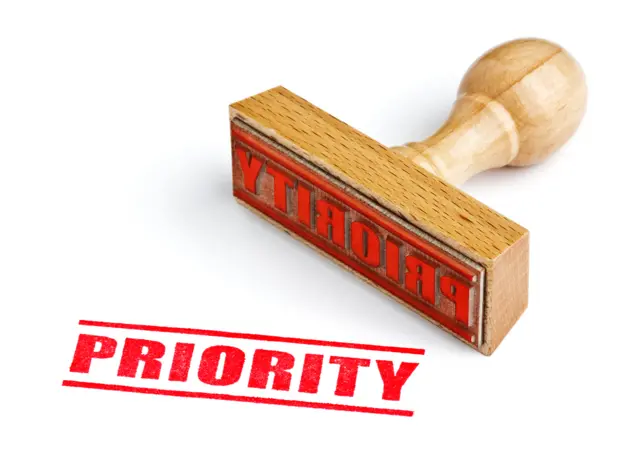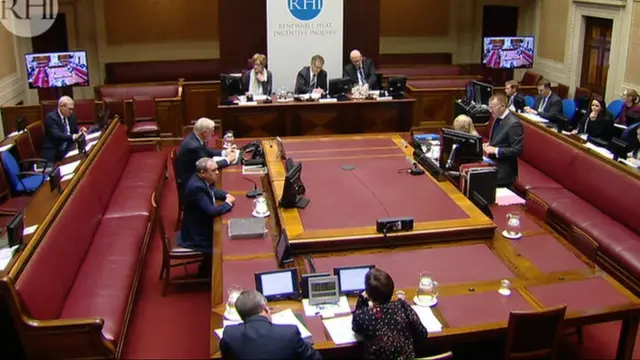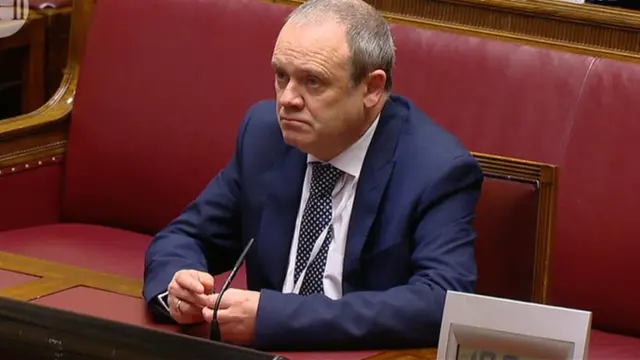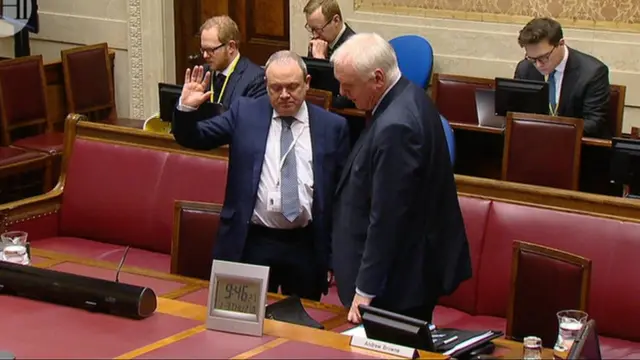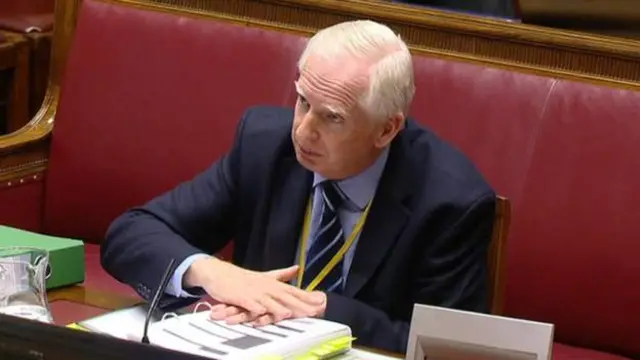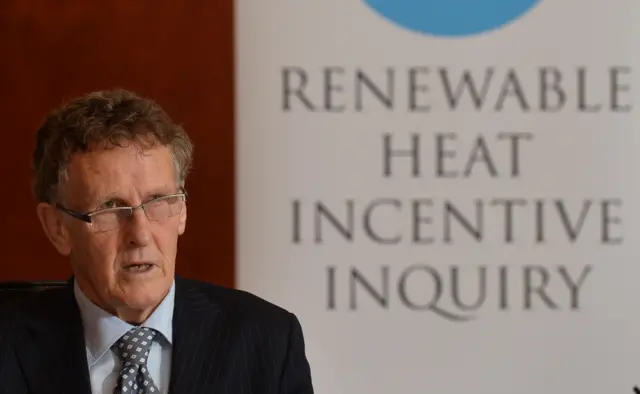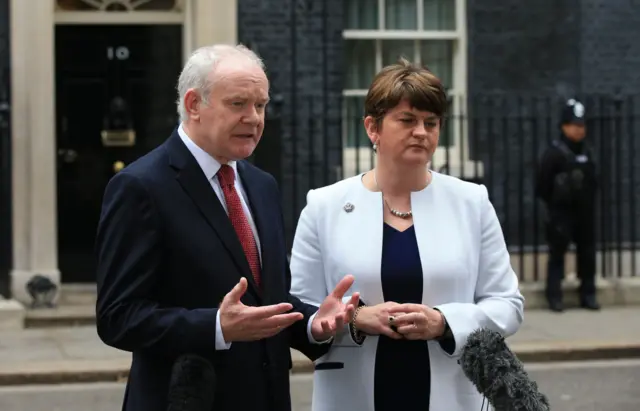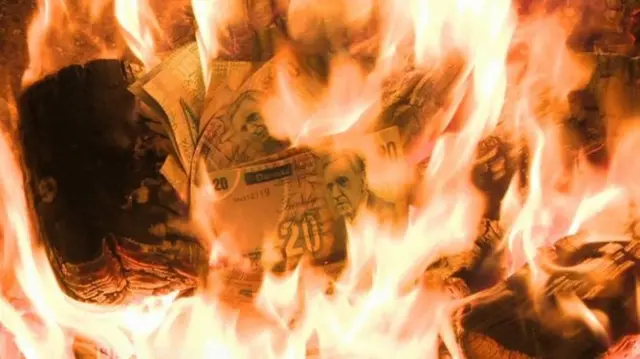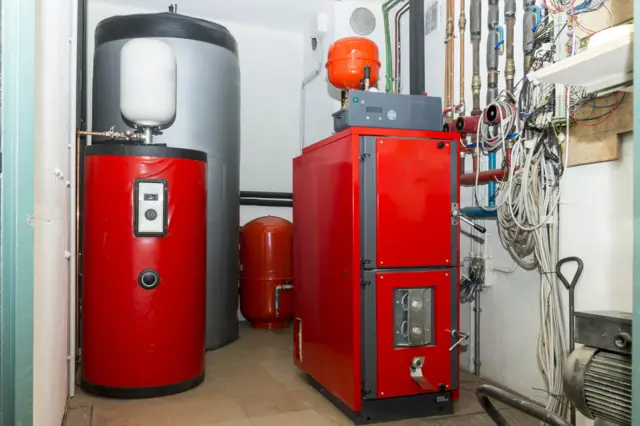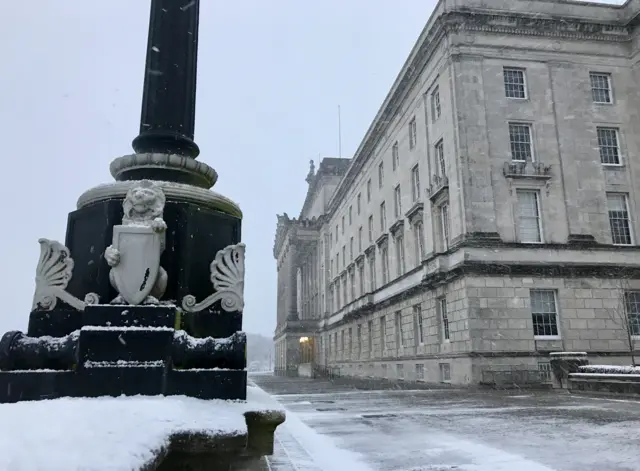'Scheme wasn't discussed at Hutchinson meeting'published at 11:16 GMT 1 March 2018
The sole matter described as urgent in Mr Hutchinson's (below) handover was a review of the RHI scheme's tariffs.
Mr Aiken says that wasn't considered at all until "potentially the start of 2015".
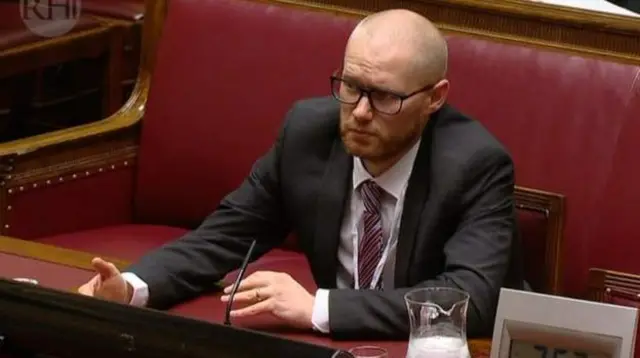 Image source, RHI Inquiry
Image source, RHI InquiryMr Hughes says it's probably reflective of his work on the domestic RHI scheme and the knotty problems of Carbon Trust loans and data sharing with the RHI scheme administrator Ofgem.
"There was no scope, or no time to do anything else," he says.
He did have a meeting with Mr Hutchinson in August 2014 but the non-domestic RHI scheme "wasn't touched on in the meeting at all".
